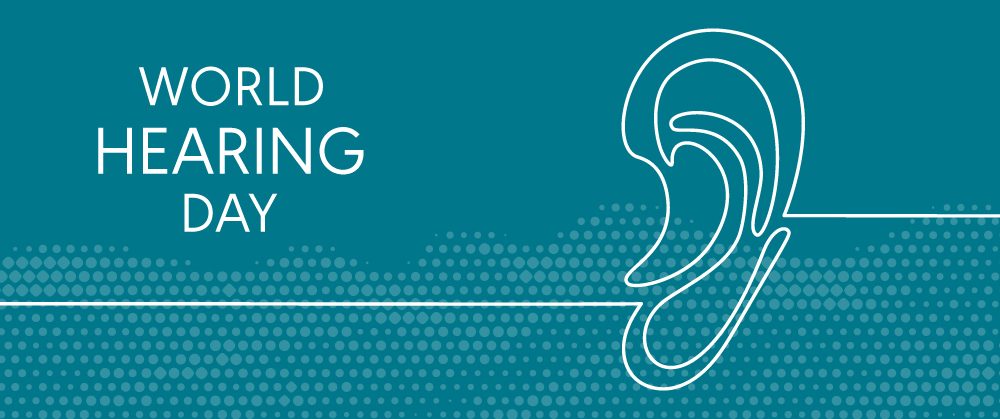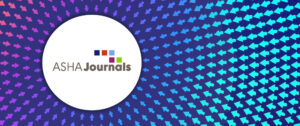This year, the World Health Organization (WHO) recognizes World Hearing Day with the theme of “Ear and Hearing Care for All.” The ASHA journals are honoring World Hearing Day by showcasing articles that focus on helping people get the hearing care they need through identification, early assessment, and the removal of existing barriers to hearing care.
Early Identification and Assessment
Knowledge, Attitude, and Practice of Hearing Loss Among Physicians in Jordan: A key focus of this year’s theme is the role that general practitioners can play in identifying ear and hearing issues and referring these patients to audiologists. In this article, the authors surveyed physicians in Jordan to assess their knowledge about hearing issues and to find areas where more education is needed for general practitioners in developing countries.
“It Depends on the Situation”: How Hearing-Specific Contexts Affect the Way Adults With Hearing Loss Report Their Personal Attributes: One important way to identify adults with untreated hearing loss is to better recognize the way in which they talk about their hearing issues. This article found that audiologists, general practitioners, and other professionals could get a better idea of a patient’s hearing conditions by asking more specific questions about listening-related situations.
Younger Age at Cochlear Implant Activation Results in Improved Auditory Skill Development for Children With Congenital Deafness: This article highlights the importance of early identification and action in children who will benefit from cochlear implantation. Although the current standard for implantation is 9 months or older, this study found that children receiving implantation earlier than 9 months had more auditory skills at age 4 than did their peers receiving implantation at 9 months or later.
Disparities and Barriers in Pediatric Hearing Care
Analysis of Health Disparities in the Screening and Diagnosis of Hearing Loss: Early Hearing Detection and Intervention Hearing Screening Follow-Up Survey: Despite advances in early identification of hearing disabilities in the last 20 years, factors such as race, ethnicity, socioeconomic status, and more may all result in children not getting proper audiology care when they need it. In this article, authors review what we know about these disparities and present strategies to reduce the effects of professional biases and geographical challenges on early hearing detection and identification (EHDI).
Barriers to Equity in Pediatric Hearing Health Care: A Review of the Evidence: Pediatric audiologists and speech-language pathologists have a responsibility to provide culturally responsive practice to their clients to ensure that these families follow up during the EHDI process. Here, authors review existing barriers and discuss how ASHA members can advocate for changes at the policy level that impact their clients’ daily lives.
More Resources for World Hearing Day
In honor of World Hearing Day, ASHA has teamed up with the Hearing Loss Association of America (HLAA) to release a digital toolkit for members of both organizations. These resources include information on over-the-counter (OTC) hearing aids, audiology services, and safe listening resources to share with consumers, with other professionals, or on social media.
You can learn more on this year’s theme from the WHO on the official World Hearing Day website. You can also check out previous coverage of World Hearing Day from the ASHA Journals Academy and Context below.
World Hearing Day is a great opportunity to celebrate audiologists around the world and to share information for people who could benefit from the services they provide. Thank you so much for taking the time to join us and for all that you do to help people with hearing loss around the world!









